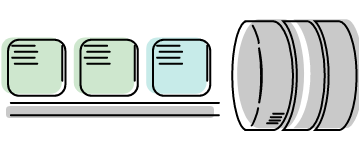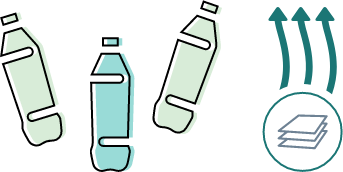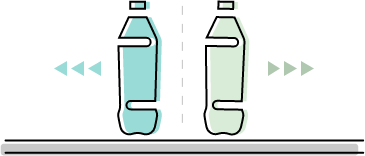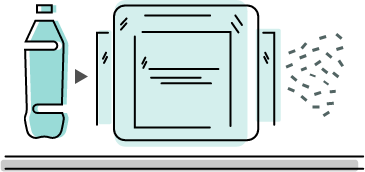
A million plastic bottles are purchased across the world every minute and the consumption of plastic bottles is set to hit half a trillion every year. Now, around 60 million plastic bottles end up in landfills every single day.

The use of energy necessary for production of 1 ton of virgin PET resin causes the emission of almost 2 tons of CO2, while recycling process emits only 400 kg of CO2 per ton of material.

Recycling Prevents Pollution- According to the data from US Environmental Protection Agency - Recycling 1 ton of Plastic bottles saves 1.5 tons of CO2 vs. landfill or incineration.
As a raw material, PET is a petroleum-based product and GreenTech is increasingly recognizing the urgency of recycling it and turning the old PET bottles into valuable resources.
Technologies for the identification and sorting of waste are essential to get the best quality PET flakes, which subsequently become raw materials in other production processes.


By using a rotary sieve and a ballistic separator, the large impurities such as sand and dirt are removed mechanically and other polymers than PET such as PE foils, cardboard and papers are removed manually.


The metallic waste found in bales is removed automatically by a magnetic separator. The aluminum cans waste is eliminated with an automatically eddy current sorting system.


The last step is the optically color sorting for PET bottles, which are transported and distributed at feeding mouths of grinding mills.

PET plastic is grounded into flakes of 8 up to 12 millimeters size.

Flakes are washed and separated using sophisticated, high-precision installations.

PET flakes are packed in special covers big-bag type, of approximately 1 ton. The quality content of each bag is tested in laboratories before being sent to final processors.
Made of 100% recycled flakes, PET strap is a binding product with excellent durability and resistance, used in the wood industry, metallurgical, textile and construction industry.
r-PET granules are made of 100% recycled PET; they become raw material for the production of food and non-food packaging.
By using innovative recycling technologies, GreenTech promotes sustainable solutions with benefits for environment and citizens.